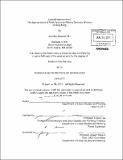| dc.contributor.advisor | Tunney Lee. | en_US |
| dc.contributor.author | Tillu, Jasmine Susanna | en_US |
| dc.contributor.other | Massachusetts Institute of Technology. Dept. of Urban Studies and Planning. | en_US |
| dc.coverage.spatial | a-cc-hk | en_US |
| dc.date.accessioned | 2011-11-18T21:19:07Z | |
| dc.date.available | 2011-11-18T21:19:07Z | |
| dc.date.copyright | 2011 | en_US |
| dc.date.issued | 2011 | en_US |
| dc.identifier.uri | http://hdl.handle.net/1721.1/67244 | |
| dc.description | Thesis (M.C.P.)--Massachusetts Institute of Technology, Dept. of Urban Studies and Planning, 2011. | en_US |
| dc.description | Cataloged from PDF version of thesis. | en_US |
| dc.description | Includes bibliographical references (p. 86-89). | en_US |
| dc.description.abstract | On a typical Sunday afternoon, hundreds of Filipina domestic workers (FDW) gather on the floor of public spaces in prime real estate areas of downtown Hong Kong. Over the last few decades, Hong Kong experienced rapid economic growth and industrialization, which led to an increase of middle class women leaving their traditional domestic roles to pursue mainstream workforce careers. Consequently, over 270,000 young laborers, many from the Philippines, have migrated to the city to work as domestic workers. Because they are required by law to live in the homes of their employers, they lack privacy and personal space. A resulting phenomenon is the large congregation of Filipina domestic workers in the downtown Central district on Sundays, their usual day-off. These workers occupy public spaces and return each week to the same spots, essentially creating a temporary "city within a city." Many local citizens view Filipinas and their "colonization" on Sundays as a major problem, causing conflict between local citizens, the government, and foreign workers. While various actors shape the space and its existence, in this thesis, I seek to expose this phenomenon from the point of view of the Filipina domestic workers themselves. I analyze the physical and programmatic use of space as well as the deeper meaning the space holds for the community. I also include an exploratory analysis of the impact of modern network communications on the spaces. Through ethnographic research, I learned the importance of the spaces and the real need for space among foreign migrant populations. By analyzing both FDWs' perspective on the space and how the Hong Kong city government has dealt with this phenomenon, I hope this thesis can inform municipal policy-makers and contribute to policies relating to this specific migrant community as well as other migrant communities and their spatial needs. | en_US |
| dc.description.statementofresponsibility | by Jasmine Susanna Tillu. | en_US |
| dc.format.extent | 89 p. | en_US |
| dc.language.iso | eng | en_US |
| dc.publisher | Massachusetts Institute of Technology | en_US |
| dc.rights | M.I.T. theses are protected by
copyright. They may be viewed from this source for any purpose, but
reproduction or distribution in any format is prohibited without written
permission. See provided URL for inquiries about permission. | en_US |
| dc.rights.uri | http://dspace.mit.edu/handle/1721.1/7582 | en_US |
| dc.subject | Urban Studies and Planning. | en_US |
| dc.title | Spatial empowerment : the appropriation of public spaces by Filipina domestic workers in Hong Kong | en_US |
| dc.title.alternative | Appropriation of public spaces by Filipina domestic workers in Hong Kong | en_US |
| dc.type | Thesis | en_US |
| dc.description.degree | M.C.P. | en_US |
| dc.contributor.department | Massachusetts Institute of Technology. Department of Urban Studies and Planning | |
| dc.identifier.oclc | 759205709 | en_US |
